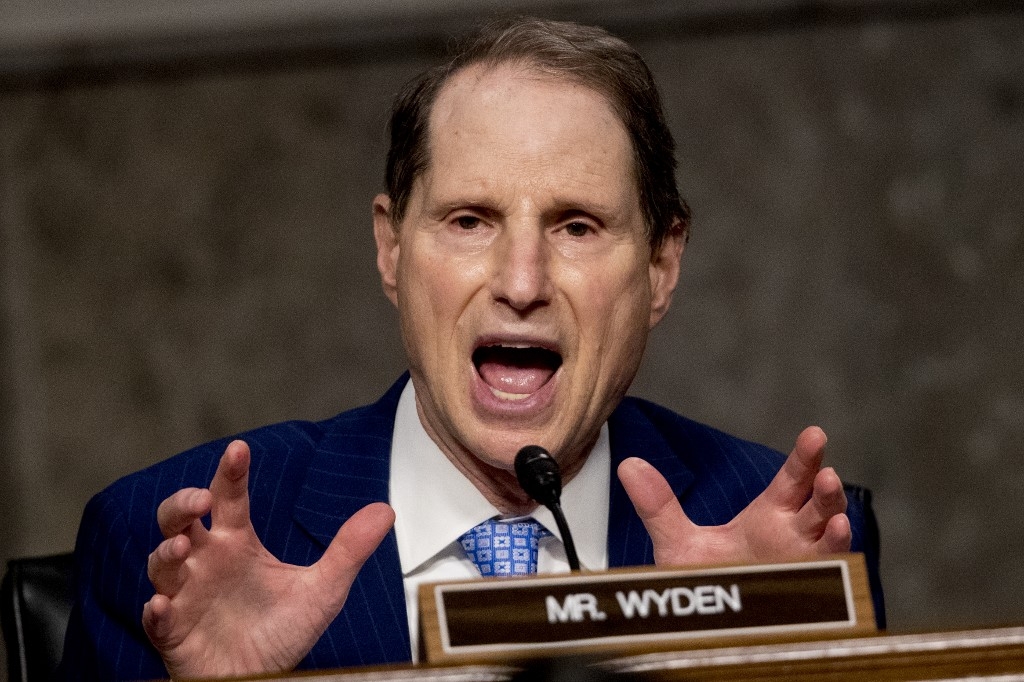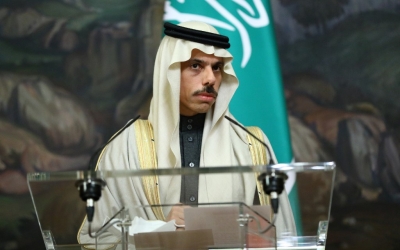Senators urge Biden to act on Saudi Arabia's alleged role in helping fugitives flee US

Two US senators from the state of Oregon are calling on the Biden administration to take action against Saudi Arabia for what they say is its role in helping its citizens escape the United States to avoid criminal prosecution.
"We urge you to do what the Trump administration would not: impose consequences on the Saudis for their indefensible behavior," senators Ron Wyden and Jeff Merkley said in a letter to Secretary of State Antony Blinken on Wednesday.
"President Biden has stated his intent to take a harder line with Saudi Arabia and taking action against the Kingdom for their subversion of the rule of law would be a good way to demonstrate that."
The renewed push by the senators follows an investigation by The Oregonian and OreganLive, which found more than two dozen instances of Saudi students who were studying in the US suddenly vanishing when facing criminal charges, including for manslaughter and other felonies.
Seven of those cases were in Oregon, including 21-year-old Portland Community College student Abdulrahman Sameer Noorah, who disappeared weeks before he was set to face trial in 2017 in the hit-and-run death of 15-year-old Fallon Smart.
Noorah later resurfaced in Saudi Arabia, and US officials had told the two Oregon news sites that he was driven out of his neighbourhood in Portland by a black vehicle and then used an illicit passport and a private plan to flee the country.
The officials said both were likely provided by the Saudi government.
Accountability
The news outlets' investigation uncovered a pattern of these types of cases dating back three decades.
Washington and Riyadh do not share an extradition treaty, and because of this it is difficult for the US to facilitate the return of any individuals charged with crimes who have fled to Saudi Arabia.
The Oregonian and OreganLive revealed, in a story co-published with ProPublica, that the FBI and Department of Homeland Security have been aware of the Saudi government intervening and helping its citizens flee the US, but made no efforts to stop it.
Wyden's office helped declassify FBI documents last year that confirmed Saudi officials "almost certainly assist US-based Saudi citizens in fleeing the United States to avoid legal issues".
In a news release, the senators said they planned to reintroduce previous legislation - first put forth in 2019 - that would mandate the State Department "report to Congress on instances where Saudi Arabian diplomats or affiliated individuals may have helped Saudi nationals leave the United States to escape criminal prosecution".
During the tenure of former President Donald Trump, who shared warm relations with Saudi Arabia and Crown Prince Mohammed bin Salman, the administration showed little to no interest in intervening, even as the number of these cases was mounting, according to the senators.
"We made these points to the Trump administration, repeatedly, and were shocked when agency after agency refused to do anything to hold the Saudi government accountable or prevent future abuses," the senators' letter read.
The Saudi embassy in Washington DC told the news outlets that it is the government's policy to cover the cost of bail for any citizen jailed in the US, if they ask for assistance. The kingdom denied playing any role in helping Saudi citizens escape.
Middle East Eye delivers independent and unrivalled coverage and analysis of the Middle East, North Africa and beyond. To learn more about republishing this content and the associated fees, please fill out this form. More about MEE can be found here.





